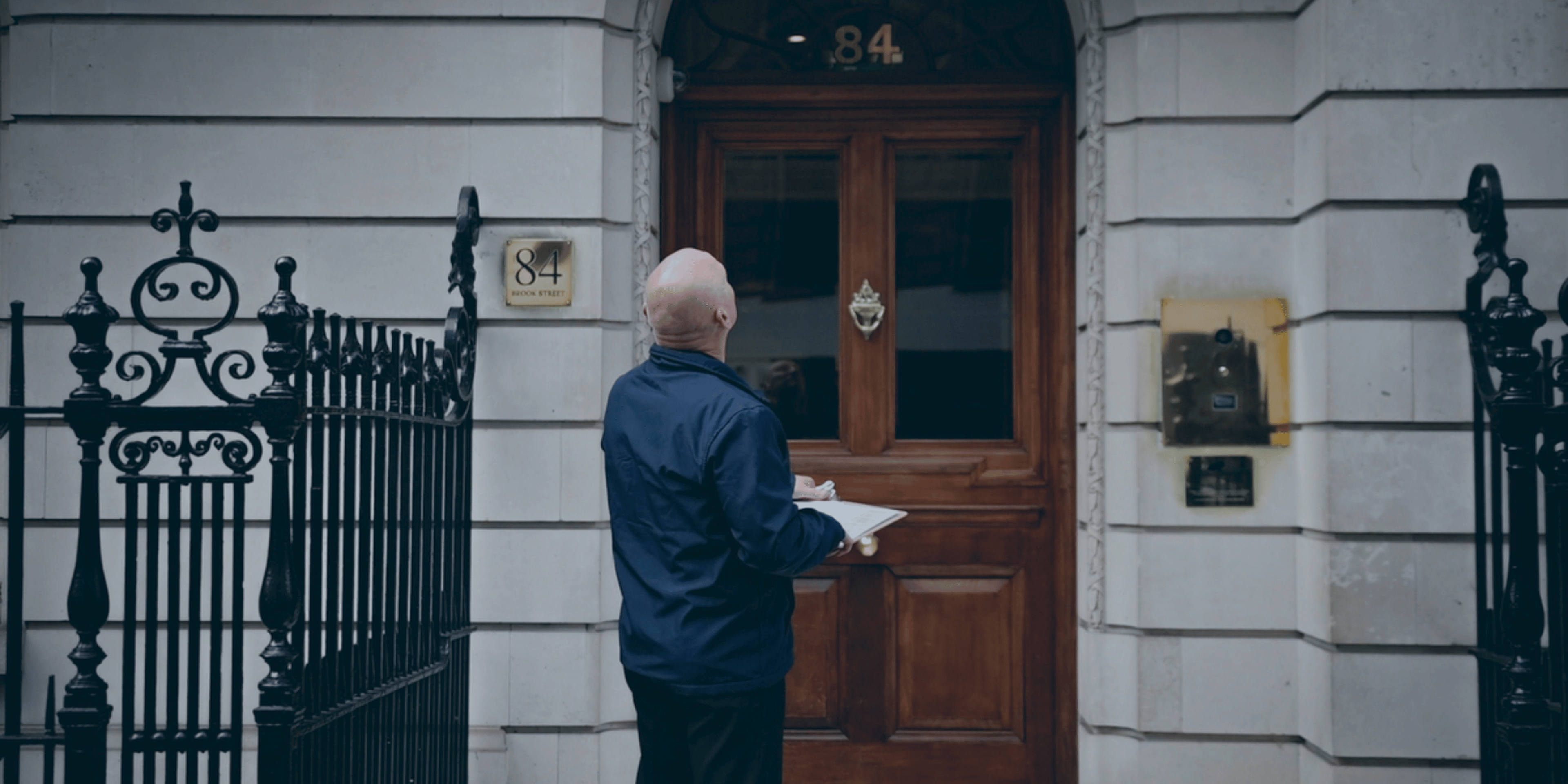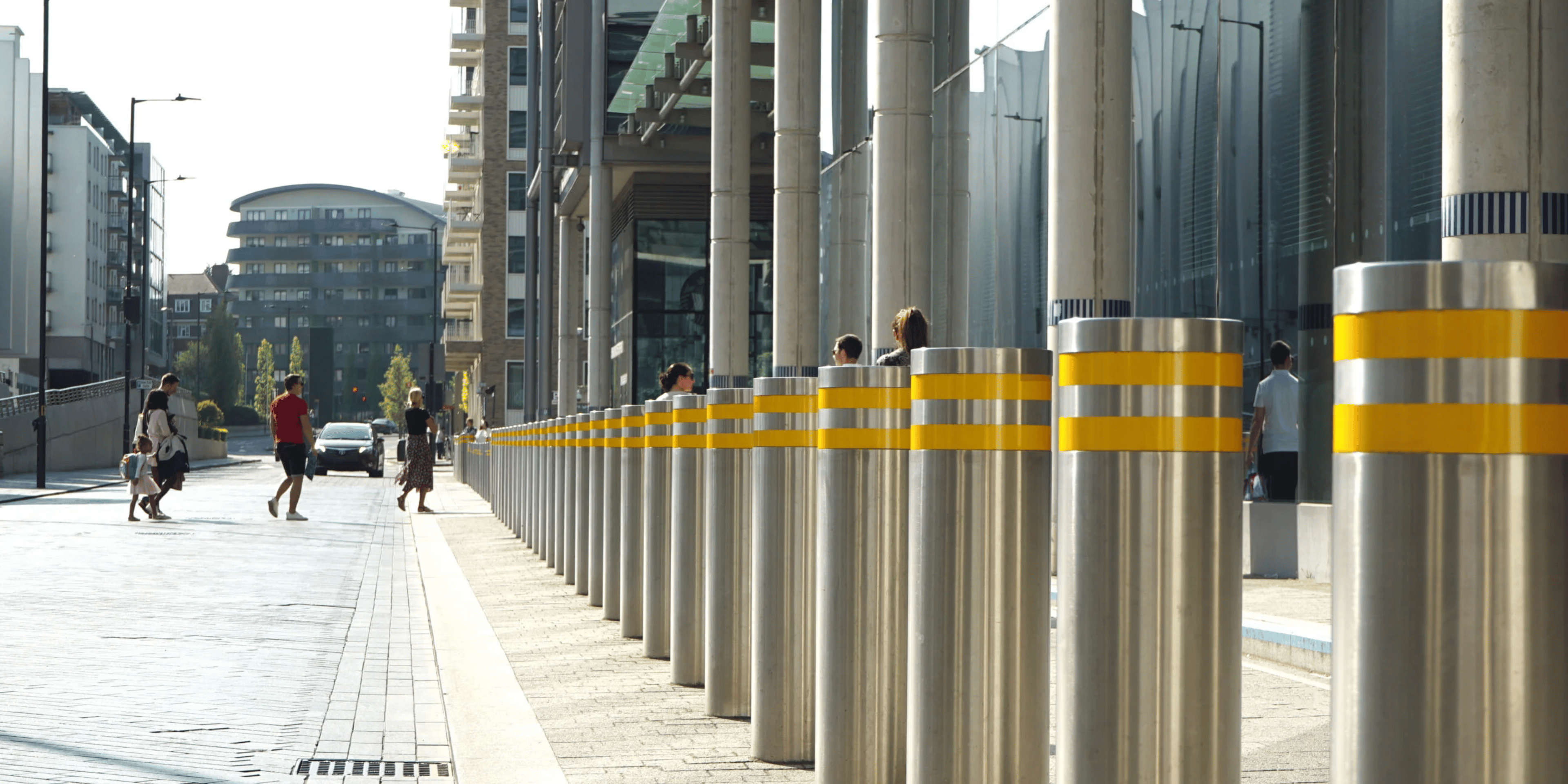
10 Essential Retail Security System Strategies for Construction Managers
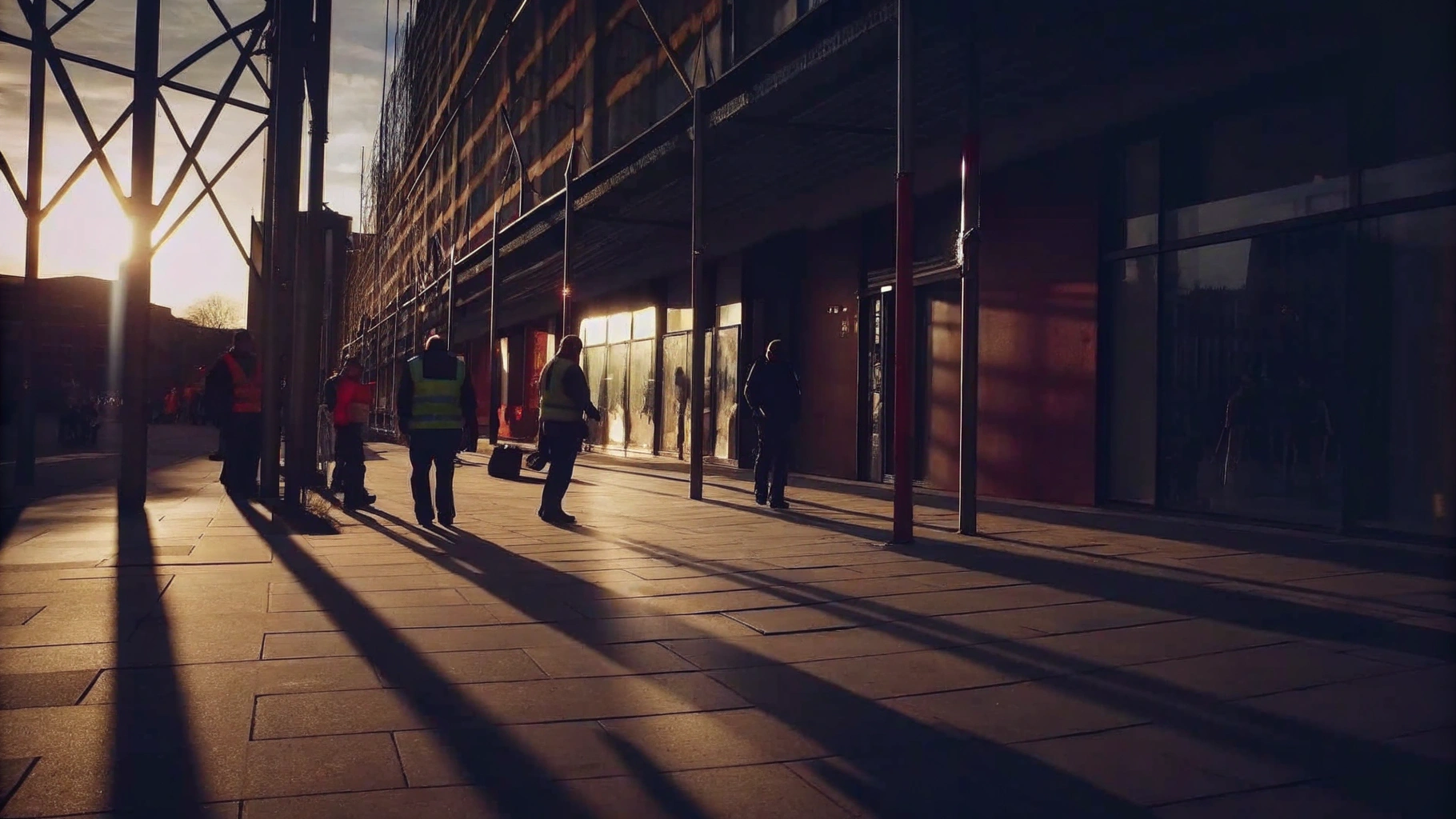
Overview
The article outlines ten essential strategies for construction managers to implement effective retail security systems. It highlights the necessity for tailored solutions that specifically address vulnerabilities within retail environments. This approach is supported by an emphasis on:
- Comprehensive risk assessments
- AI-driven threat detection
- Continuous monitoring
Collectively, these strategies enhance safety and protect assets during the construction phase.
Introduction
In an increasingly complex retail landscape, construction managers are confronted with significant security challenges that can undermine their operations. The reality is that safeguarding assets while maintaining operational efficiency is not merely a precaution; it is a fundamental necessity that directly influences the success of retail projects. Ignoring these risks can lead to substantial financial losses, operational disruptions, and reputational damage.
In practise, the implementation of robust security strategies is essential for creating a safe and resilient retail environment. This article explores ten essential retail security system strategies that empower construction managers to address vulnerabilities, enhance safety measures, and ultimately protect their investments.
Priority First: Tailored Security Solutions for Retail Environments
Priority First excels in creating customised protection solutions tailored to the distinct needs of retail environments, including a comprehensive retail security system. The reality is that comprehensive risk evaluations are essential for each project, ensuring that protective measures are effective and seamlessly integrated into the building process. This strategic approach minimises disruptions while maximising safety and asset protection.
That said, industry specialists highlight that incorporating protective measures early in the building phase is crucial for reducing risks and improving overall safety. Tailored approaches enable project supervisors to address specific vulnerabilities, ultimately resulting in a more secure shopping atmosphere through an effective retail security system. In practise, the effective incorporation of protective measures during construction projects safeguards assets and fosters a safe environment for future operations.
The lesson is clear: construction managers must prioritise customised protective solutions in their commercial projects. Early investment in security not only prevents greater losses later but also enhances overall business resilience.
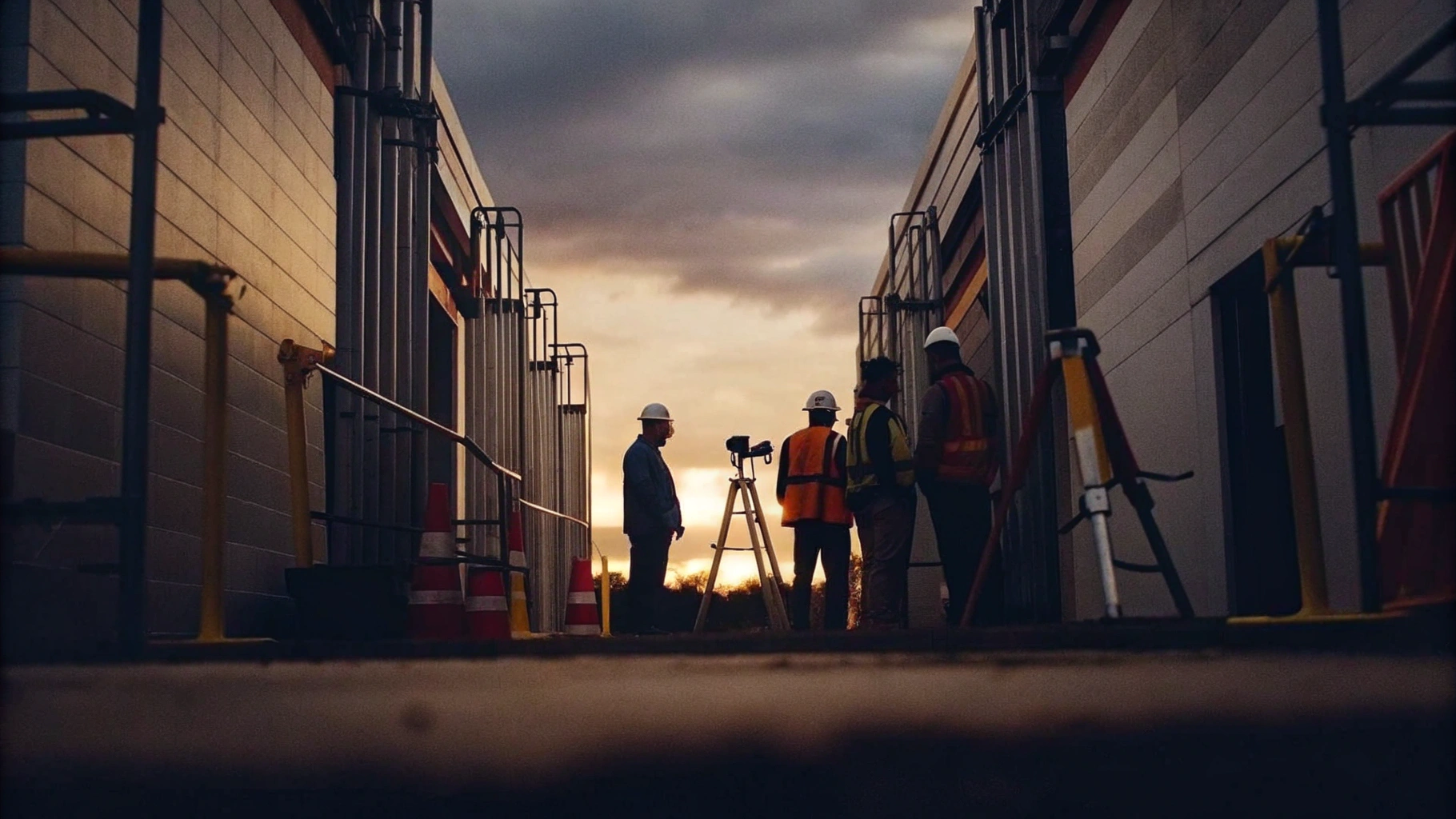
AI-Driven Threat Detection: Enhancing Retail Security with Intelligent Technology
AI-powered threat detection systems are enhancing the retail security system by transforming store protection through real-time monitoring and automated alerts for suspicious behaviours. These technologies leverage advanced analytics to scrutinise patterns and behaviours, allowing teams to respond promptly to potential threats.
For construction managers, integrating AI tools into commercial projects significantly enhances safety efficiency, proactively addressing vulnerabilities and refining response strategies. With 95% of commerce organisations now employing generative AI, the emphasis has shifted towards structured, corporate-led strategies that mitigate risks such as data exposure and theft.
The lesson is clear: retailers adopting AI-powered retail security systems, such as those used by Winters Market and Laurel Ace Hardware, have reported up to a 50% reduction in theft, illustrating the concrete advantages of these innovations. As the commercial landscape evolves, implementing smart technology not only fortifies protective measures but also fosters a safer environment for employees and consumers alike.
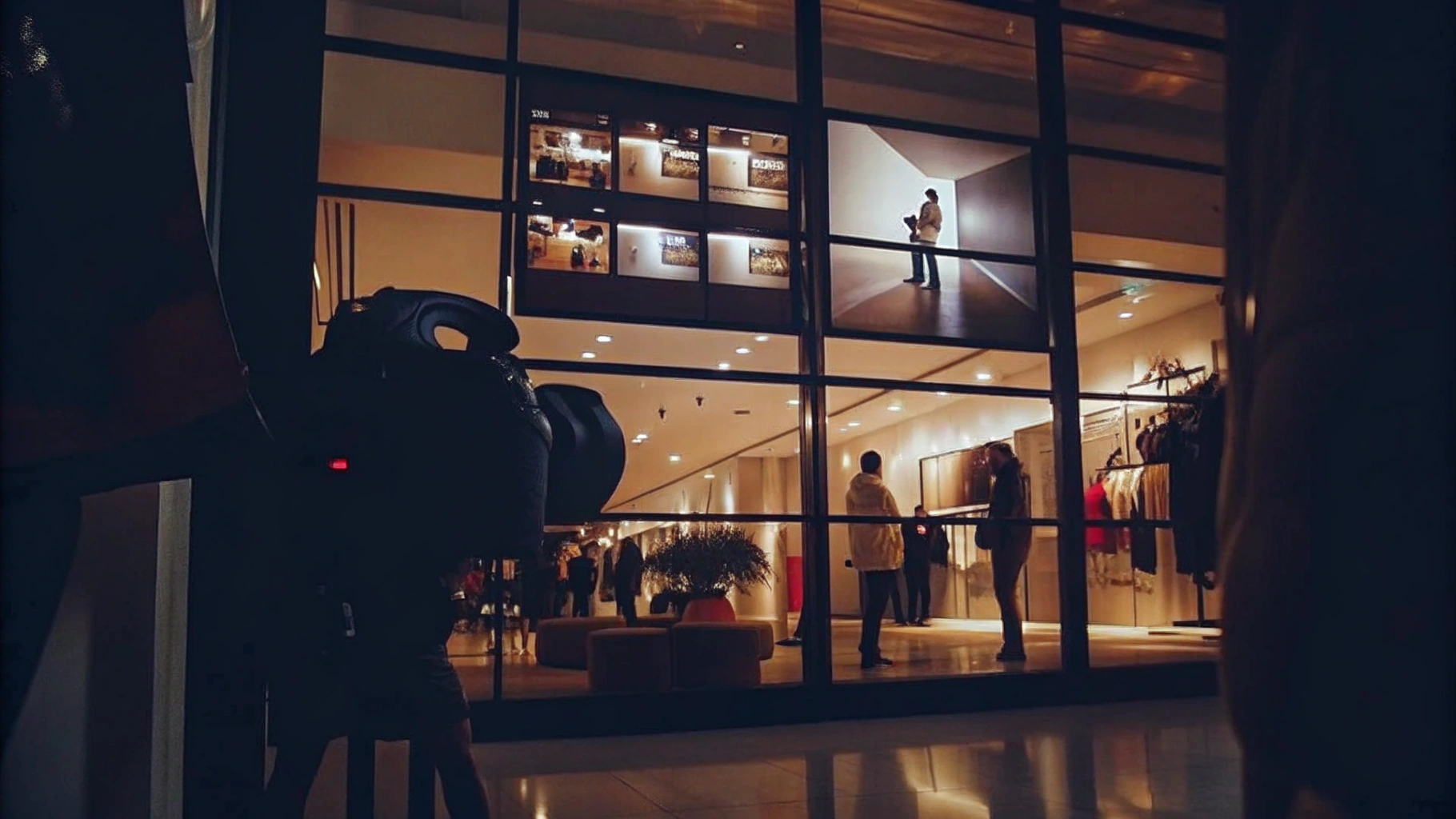
Comprehensive Risk Assessments: Identifying Vulnerabilities in Retail Security
Thorough risk evaluations are essential for identifying weaknesses in store protection. A recent analysis highlighted that 80% of the UK's top retailers are exposed to critical cyber vulnerabilities. This reality underscores the necessity for systematic assessments of potential threats. By doing so, project supervisors can create customised strategies that address the unique challenges inherent to each retail setting.
The implications of neglecting these risks are significant. Ignoring security vulnerabilities can lead to substantial financial losses, operational disruptions, and reputational damage. Security experts emphasise that even minor oversights, such as unpatched software, can open doors to significant threats. Therefore, it is imperative that businesses prioritise robust risk assessment protocols.
In practise, implementing these protocols not only strengthens security measures but also guarantees compliance with safety regulations, thereby protecting both assets and personnel during the building phase. By enhancing operational resilience, project managers can safeguard their initiatives from potential disruptions.
Priority First’s role in this context is clear. With a focus on pragmatic solutions, they provide the expertise necessary to navigate these complexities. Their track record, including securing over £1.6bn in assets and demonstrating rapid response times, positions them as a trusted partner in enhancing business continuity. Early investment in security measures is not merely a precaution; it is a strategic decision that prevents greater losses later.
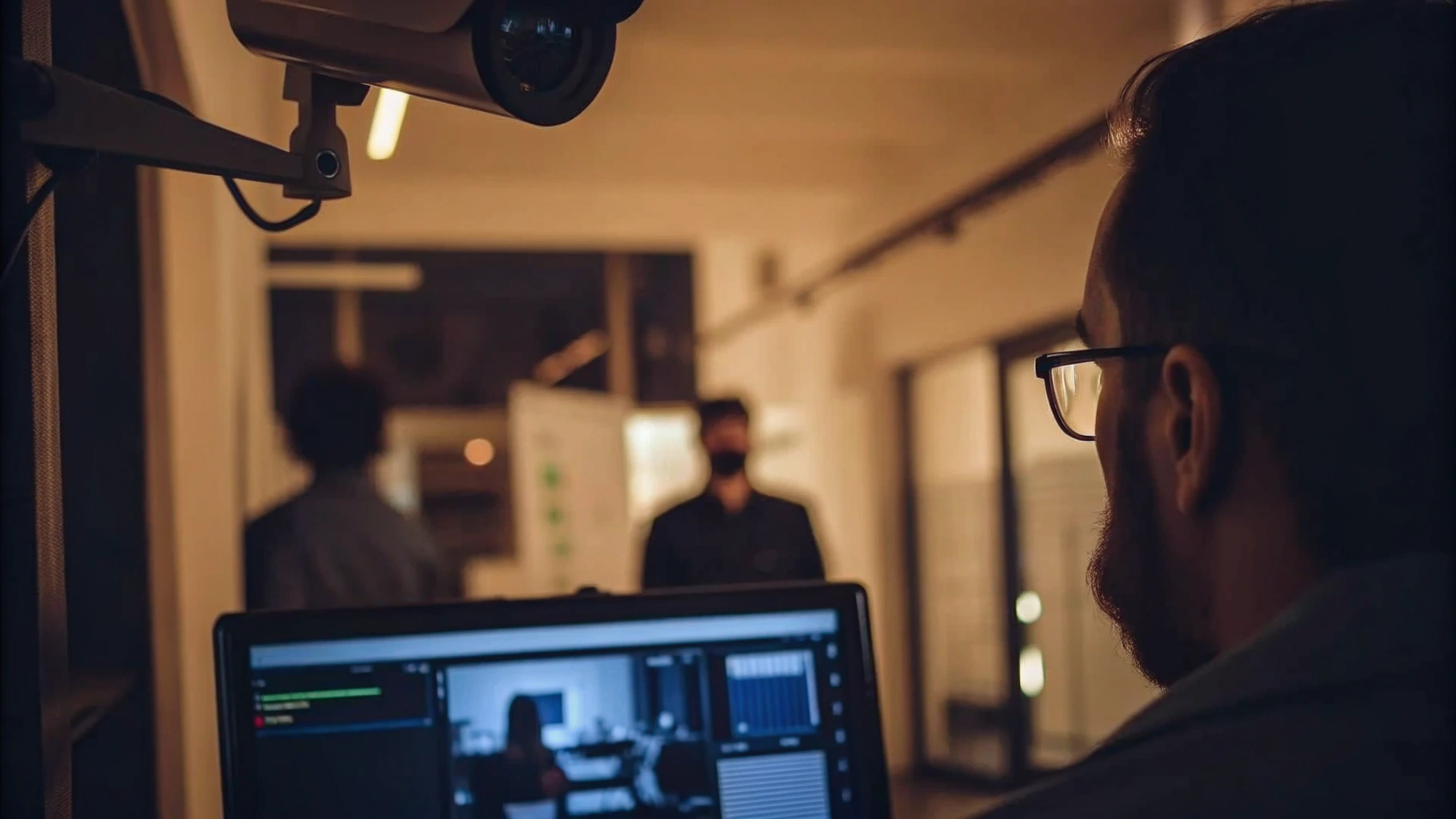
24/7 Monitoring: Ensuring Continuous Protection for Retail Spaces
Establishing a retail security system with 24/7 monitoring is essential for ensuring the ongoing safety of retail spaces, particularly during construction phases. The reality is that Priority First's retail security system includes a CCTV monitoring service that provides round-the-clock surveillance, enabling the prompt detection of breaches and allowing for swift responses to incidents. For project managers, a reliable monitoring system not only safeguards the site but also instils confidence in stakeholders regarding the protection of their investments.
In practise, our integration capabilities ensure that these monitoring solutions work seamlessly with existing retail security systems, enhancing overall safety without causing disruption. As demonstrated in our case studies, such as the luxury hotel development in Chelsea, ongoing protection strategies are crucial for mitigating risks and maintaining operational integrity. The lesson is clear: by utilising advanced monitoring systems from Priority First, site supervisors can create a secure environment that deters potential threats and ensures the safety of both personnel and assets.
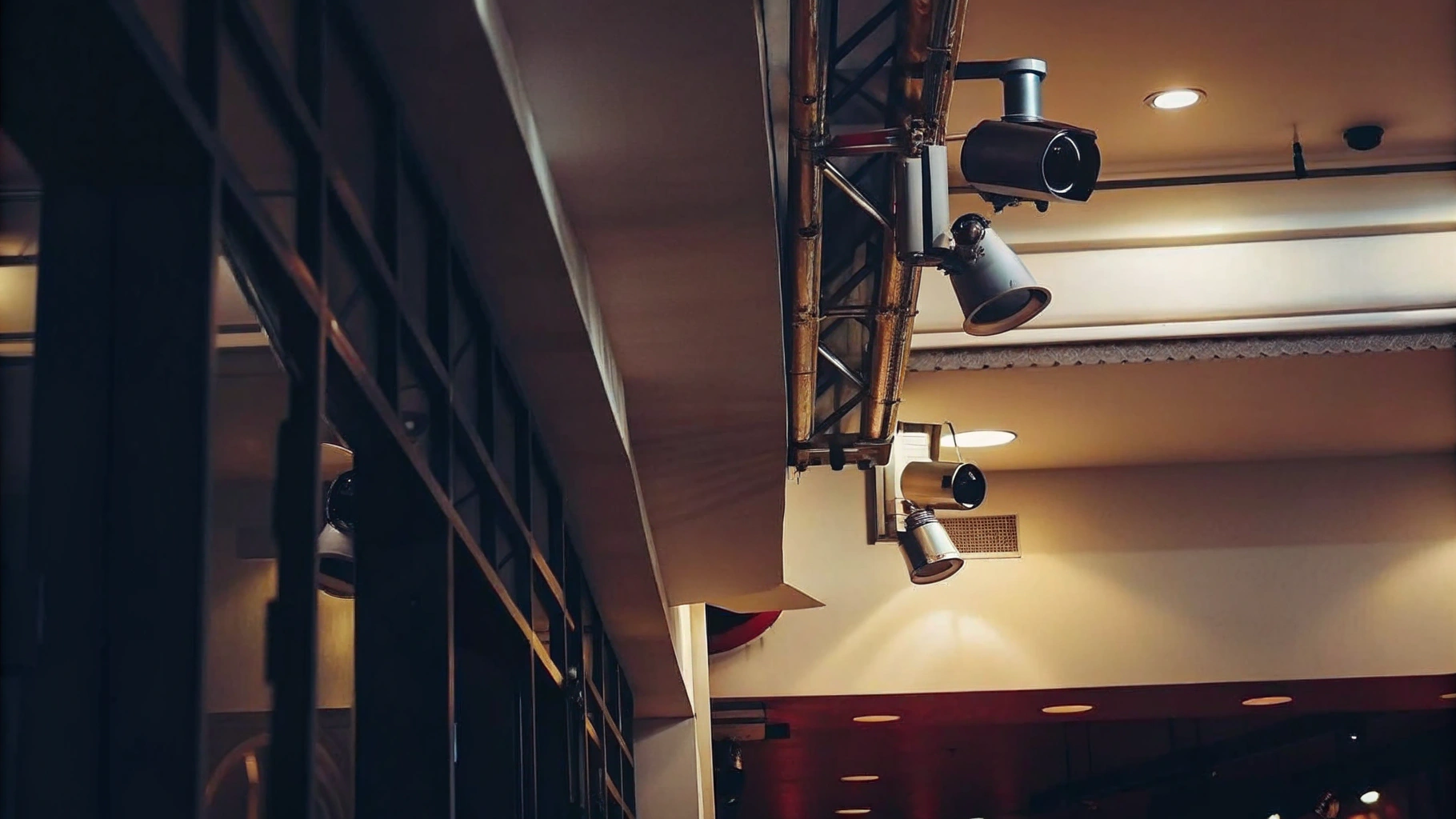
Customized Security Plans: Tailoring Solutions to Unique Retail Needs
Creating personalised protection strategies is essential for effectively addressing the unique needs of each shopping environment through a retail security system. By collaborating with specialists such as Priority First, construction managers can devise strategies that take into account the specific layout, operational dynamics, and potential vulnerabilities of the retail security system in the space. This tailored approach not only strengthens the retail security system but also cultivates a safer environment for both employees and customers.
For instance, Priority First's experience in managing protection for multi-use complexes, such as the project on Kings Road in Chelsea, illustrates the impact of customised safety solutions. This project faced challenges, including the management of mixed residential and commercial tenants, frequent deliveries, and heavy foot traffic from various contractors. Priority First provided key holding, CCTV monitoring, and logistics management, which were instrumental in identifying risks and vulnerabilities. This comprehensive strategy ensured the site remained secure and well-organised, critical for maintaining smooth operations.
Moreover, the integration of advanced technologies, such as AI-driven surveillance and real-time monitoring, combined with trained personnel, including manned guarding and mobile patrols, demonstrates how tailored solutions can adapt to the evolving landscape of commercial building projects. By prioritising collaboration with safety experts and investing in ongoing employee training, construction managers can ensure that their protection strategies are not only effective but also include a retail security system that aligns with the specific demands of the retail sector.

Staff Training Programs: Empowering Employees for Effective Security Management
Implementing comprehensive staff training programmes is essential for empowering employees to manage safety effectively. Training should encompass:
- Identifying suspicious behaviour
- Emergency response protocols
- Proficient use of protective technology
By equipping employees with critical skills and knowledge, site supervisors can foster a culture of safety awareness that significantly mitigates risks in commercial environments. Effective training not only boosts employee confidence but also ensures they are prepared to respond decisively to potential threats.
Continuous training programmes enable employees to recognise and report suspicious behaviours, thus establishing a proactive protective stance. Industry professionals assert that a well-trained team, in conjunction with a retail security system, serves as the first line of defence, safeguarding both assets and the overall shopping experience.
Emphasising safety training allows building supervisors to enhance operational effectiveness and contribute to a safer shopping atmosphere. Furthermore, integrating Priority First's customised risk management and consulting services can further bolster these training initiatives, ensuring alignment with the specific risks and operational needs of the site.

CCTV Systems: A Cornerstone of Retail Security Infrastructure
CCTV systems are a crucial component of the retail security system for commercial spaces, especially for construction site supervisors managing projects in busy environments. Priority First’s comprehensive CCTV monitoring services deliver continuous visual surveillance, effectively deterring criminal activity and providing valuable evidence should an incident occur. The integration of high-quality CCTV systems as part of a retail security system into commercial projects is essential for maintaining safety and ensuring that any potential threats are swiftly identified and addressed.
Current trends in CCTV technology, including AI-powered analytics, night vision capabilities, and high-resolution imaging, significantly enhance the efficacy of these systems. Such advancements facilitate quicker responses to suspicious activities, thereby markedly reducing the risk of theft and vandalism. Research indicates that visible surveillance cameras act as a psychological deterrent, prompting potential offenders to reconsider their actions before engaging in criminal behaviour.
Experts underscore the importance of a retail security system, including CCTV, in construction projects, noting that it not only protects the site but also bolsters the overall safety of the commercial environment. Priority First excels in integrating a retail security system that includes CCTV and additional security measures, such as access control systems, to thwart unauthorised entry and mitigate potential security breaches in restricted areas. This integration is vital for achieving comprehensive coverage of vulnerable locations. As the commercial landscape continues to evolve, leveraging advanced CCTV technology from Priority First will remain essential for ensuring a secure and efficient operational environment.
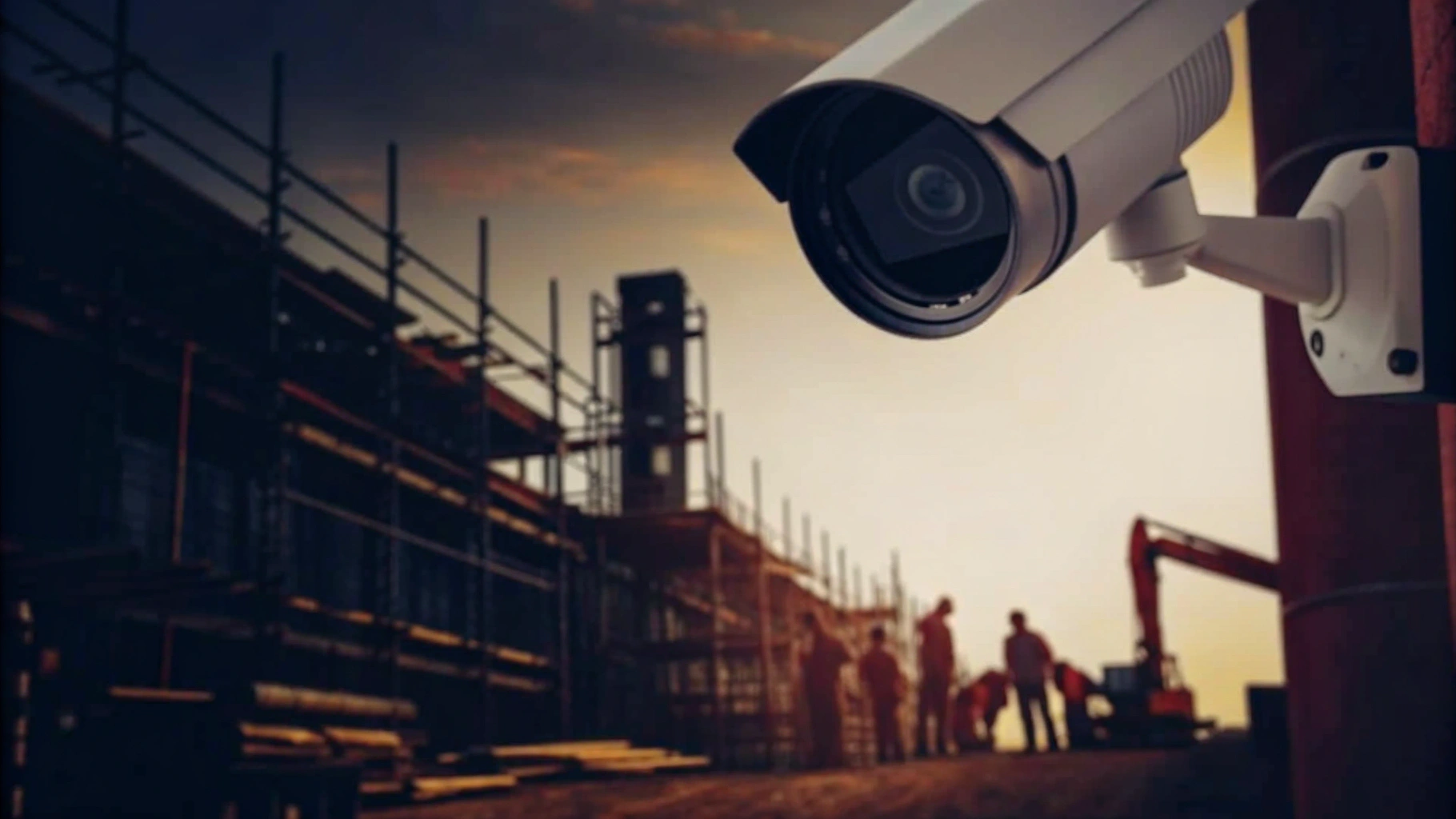
Access Control Systems: Preventing Unauthorized Access in Retail Settings
Access control systems are essential in preventing unauthorised access in retail environments. These systems encompass various measures, including key cards, biometric scanners, and trained personnel, all aimed at effectively managing entry points. For project managers, adopting robust access control measures is vital to ensure that only authorised personnel can access sensitive areas, thereby protecting valuable assets and maintaining a secure environment.
Recent statistics indicate a troubling rise in shoplifting offences, escalating from 444,022 in 2024 to 530,643 in 2025, with over 70% of these thefts attributed to addiction. This alarming trend highlights the need for effective access control systems that not only restrict entry but also furnish valuable data for audits and monitoring.
Current trends in access control technology include the integration of biometric systems, which utilise fingerprint and facial recognition to enhance safety. These advanced systems offer distinct identification methods particularly suited for high-risk environments, such as construction sites. Moreover, contemporary access control systems can be linked with CCTV monitoring to create a comprehensive security strategy, enabling real-time surveillance and prompt responses to unauthorised access.
Security professionals stress the significance of employee training in understanding access control systems and the associated risks. Regular audits and vulnerability assessments are crucial for identifying weaknesses and ensuring the effectiveness of these systems. As one expert noted, "A person watching me is going to put me off a million times more than a camera or facial recognition," underscoring the importance of human oversight alongside technological measures.
By adopting a multi-faceted approach to access regulation, including integration with a retail security system and CCTV surveillance, businesses can significantly enhance safety, mitigate risks, and protect their investments in retail environments.
Incident Response Protocols: Quick Action Plans for Retail Security Breaches
Creating incident response protocols is essential for ensuring prompt and efficient action during breaches. These protocols should outline specific steps to take in various scenarios, including theft, vandalism, or emergencies. The reality is that for project supervisors, having a clearly outlined reaction strategy established not only reduces possible losses but also improves overall site safety.
Priority First focuses on customising protective solutions to address the distinct requirements of construction sites, ensuring that incident response protocols are incorporated into an all-encompassing safety strategy. This approach protects assets and optimises operational efficiency, allowing managers to concentrate on their core responsibilities while maintaining a secure environment.
Furthermore, incorporating CCTV monitoring into these protocols improves safety by serving as a deterrent to crime and offering real-time surveillance. Priority First guarantees smooth integration of its services with current protection systems, further enhancing the overall safety framework. The lesson is clear: early investment in comprehensive security measures prevents greater losses later.
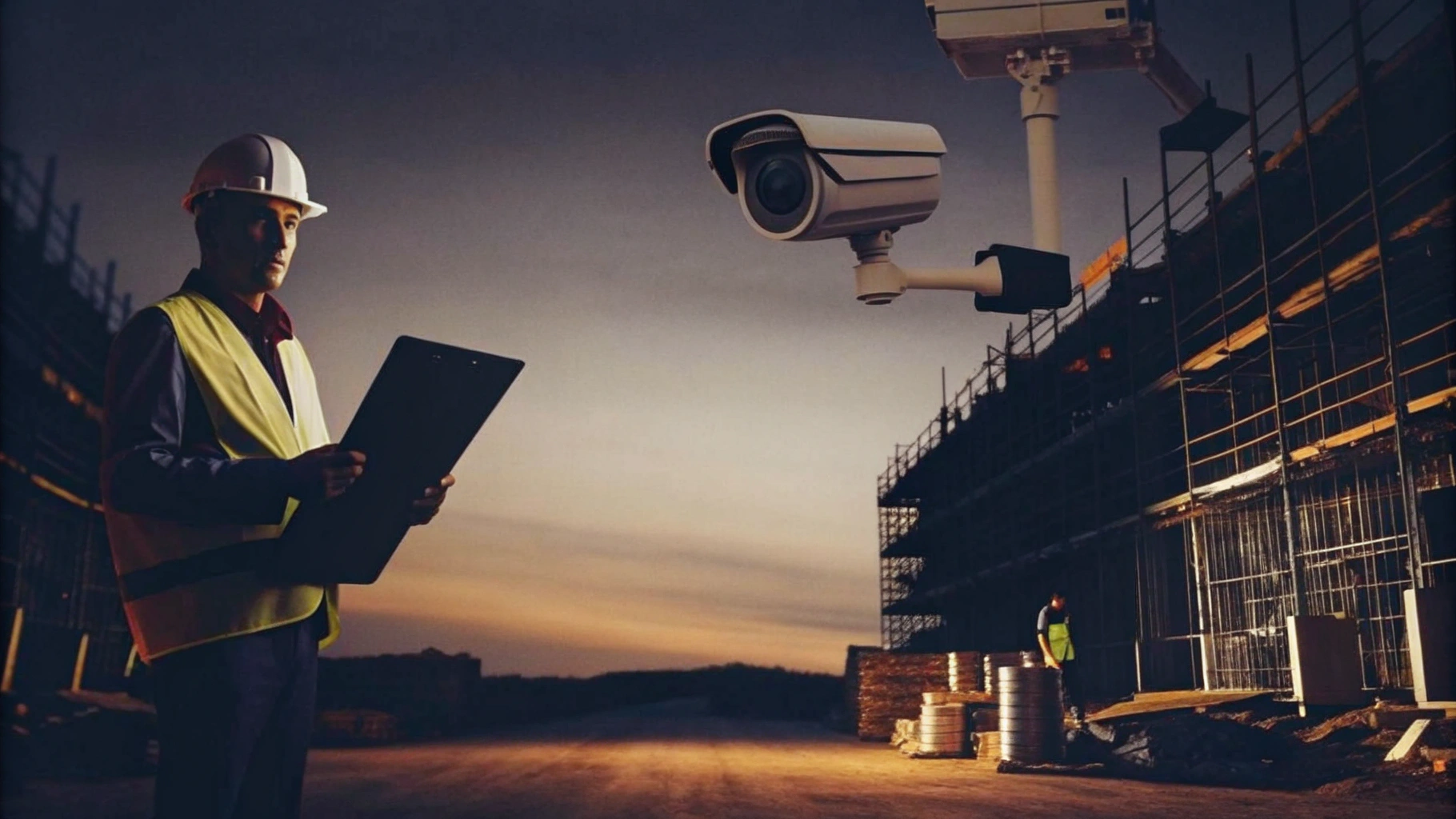
Customer Feedback Integration: Refining Retail Security Strategies Based on Client Insights
Incorporating customer feedback into protection strategies is essential for enhancing safety measures. Actively seeking insights from clients enables construction managers to identify vulnerabilities and areas for improvement. This collaborative approach not only fortifies protective measures but also builds trust and satisfaction among clients, ensuring their unique needs are met. The reality is that understanding client perspectives can lead to more tailored protective solutions, ultimately enhancing operational efficiency and safety.
Priority First exemplifies this proactive management and client-focused approach, successfully addressing safety challenges in multi-use complexes. For instance, their efforts on Kings Road in Chelsea included extensive services such as key holding, CCTV monitoring, and logistics management. Testimonials from clients underscore Priority First's commitment to excellence and reliability, reinforcing the effectiveness of their customised protective solutions.
Furthermore, 64.5% of clients prefer less intrusive protective measures, highlighting the necessity for project leaders to adopt strategies that align with client expectations. By prioritising client insights and leveraging the expertise of firms like Priority First, construction managers can implement a retail security system that not only safeguards assets but also enhances the overall shopping experience, thereby preventing lost sales and fostering brand loyalty. The lesson is clear: early investment in security measures translates to greater long-term value and resilience for businesses.
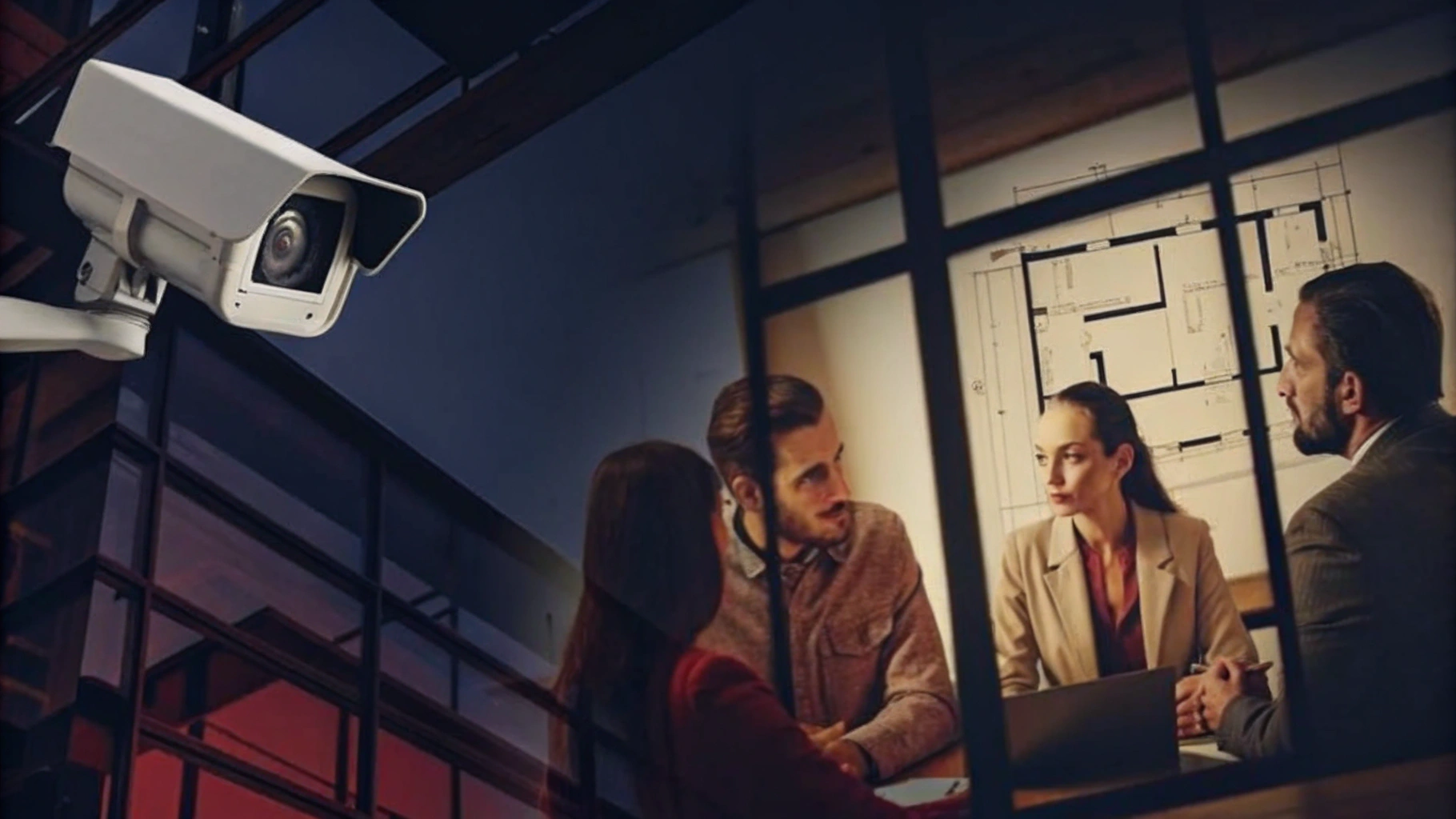
Conclusion
Establishing a robust retail security system is essential for construction managers aiming to protect their projects and foster secure environments for future operations. Customised protective solutions, including tailored security strategies and advanced technologies, are crucial in addressing the unique vulnerabilities of retail settings. By prioritising early investment in security measures, managers can prevent significant losses and enhance their businesses' overall resilience.
The reality is that several key strategies exist, such as:
- The integration of AI-driven threat detection
- Comprehensive risk assessments
- 24/7 monitoring systems
These approaches empower construction managers to proactively identify and mitigate risks, ensuring the protection of both personnel and assets. Furthermore, the importance of staff training programmes and customer feedback integration cannot be overstated, as they cultivate a culture of safety awareness and continuous improvement in security measures.
That said, the significance of tailored retail security strategies cannot be overlooked. By embracing innovative technologies and prioritising customised solutions, construction managers can create safer shopping environments that benefit both employees and customers. In a rapidly evolving commercial landscape, taking decisive action now will pave the way for greater operational efficiency and long-term success in retail security.
Frequently Asked Questions
What types of security solutions does Priority First provide for retail environments?
Priority First offers customised protection solutions tailored to the specific needs of retail environments, including a comprehensive retail security system.
Why are comprehensive risk evaluations important in retail security?
Comprehensive risk evaluations are essential for each project to ensure that protective measures are effective and seamlessly integrated into the building process, minimising disruptions and maximising safety and asset protection.
How can incorporating protective measures early in the building phase benefit retail security?
Incorporating protective measures early in the building phase reduces risks and improves overall safety, allowing project supervisors to address specific vulnerabilities and create a more secure shopping atmosphere.
What is the impact of AI-powered threat detection systems on retail security?
AI-powered threat detection systems enhance retail security through real-time monitoring and automated alerts for suspicious behaviours, allowing teams to respond promptly to potential threats.
How has the adoption of AI technology affected theft rates in retail?
Retailers using AI-powered security systems have reported up to a 50% reduction in theft, demonstrating the concrete advantages of these innovations.
What percentage of the UK's top retailers are exposed to critical cyber vulnerabilities?
A recent analysis indicated that 80% of the UK's top retailers are exposed to critical cyber vulnerabilities.
What are the consequences of neglecting security vulnerabilities in retail?
Ignoring security vulnerabilities can lead to substantial financial losses, operational disruptions, and reputational damage, emphasising the need for robust risk assessment protocols.
How does Priority First contribute to enhancing retail security?
Priority First provides expertise in navigating security complexities, securing over £1.6bn in assets and demonstrating rapid response times, thus enhancing business continuity and operational resilience.


